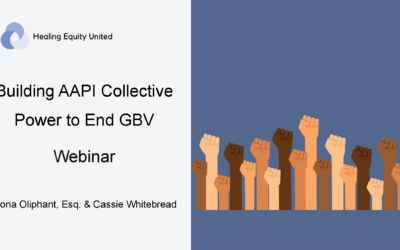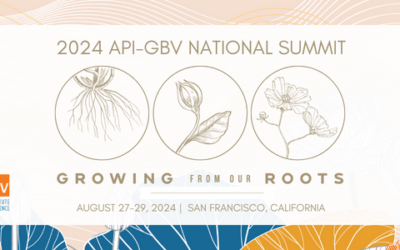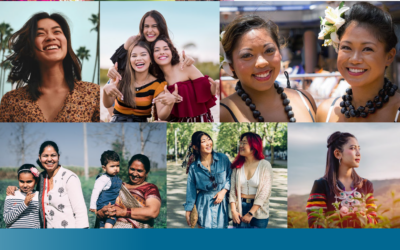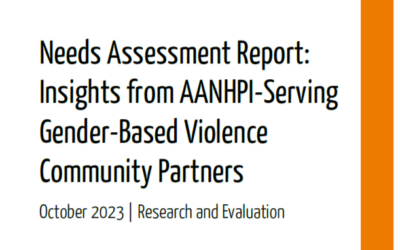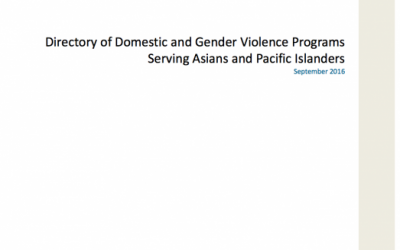Global displacements have reached a record high: an unprecedented 79.5 million people, of which 26 million are refugees, had been displaced from their homes by conflict and persecution by the end of 2019, according to UNCHR. The trauma of displacement is compounded by levels of gender-based violence, especially sexual violence, women and girls face in conflict zones, during flight or in refugee camps, and during resettlement. This fact sheet identifies the barriers refugee survivors of domestic violence face and approaches that can mitigate their impact.
Related Resources
Building AAPI Collective Power to End GBV
March 7, 8am HST/11am PST/1pm CST/2pm ESTAsians, Asian Americans, and Pacific Islanders (AAPIs) are often left out of conversations around diversity, equity, inclusion, and belonging (DEIB) in the U.S. Often lumped together as a “model minority,” certain AAPI groups...
2024 APi-GBV National Summit: Growing From Our Roots
Latest Update: Early Bird Registration Open Now Through June 1!See all available API-GBV National Summit information below:This page will continue to be updated as more information is released. For any technical issues or additional questions, please contact our team...
Connected and concerned: Online sexual harassment of teenagers of Asian descent on dating platforms
February 29, 8am HST/11am PST/1pm CST/2pm ESTGenerative AI, with its ability to create morphed photos and deepfakes, is negatively impacting teenagers, especially female teenagers of Asian descent, online and influencing their identity in digital spaces. This...
Impact Report FY22: Growing Stronger Together to Build Collective Power
The Asian Pacific Institute on Gender-Based Violence (API-GBV) is a culturally specific national resource center on domestic violence, sexual violence, trafficking, and other forms of gender-based violence in Asian/Asian-American and Pacific Islander (AAPI)...
2023 CBO Needs Assessment Report & Summary
This report explores and contextualizes the results from API-GBV's 2023 needs assessment on AANHPI-serving GBV community organizations. The findings support a sustained need for culturally responsive programming and research; specialized training opportunities for...
Directory of Domestic & Gender Violence Programs Serving Asians, Native Hawaiians and Pacific Islanders, 2023
Lists roughly 150 agencies in the U.S. that have culturally-specific programs designed for survivors from Asian and Pacific Islander communities.
API-GBV
September 2016 (Figures updated 2020)
Download our other accessibility briefs on Asian and Pacific Islander survivors and survivors with limited English proficiency
